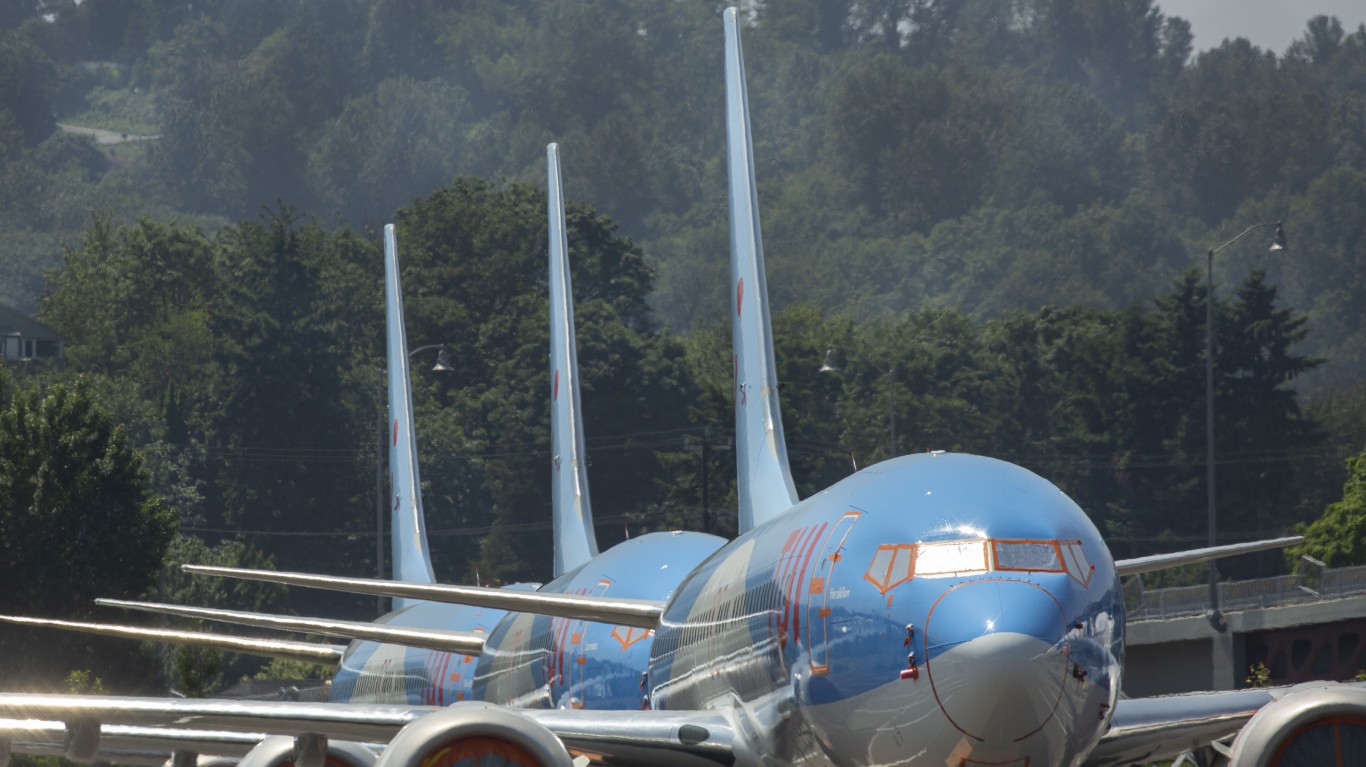
In early October of 2018, Boeing Co. (NYSE: BA) stock traded close to $400 a share. Six weeks later, shares traded at less than $300. By late February of 2019, shares traded at around $440 and a year later, the stock was back under $300. The share price declines came after each of two fatal crashes, one in Indonesia and the other in Ethiopia, of the company’s 737 Max.
The second crash caused a worldwide grounding of Boeing’s top-selling plane, but the real killer for the company’s stock was the virtually total global restriction on air travel beginning in March of 2020. At its trough, Boeing stock traded below $90 by the end of March 2020 after trading at around $265 just three weeks earlier.
As of Thursday’s close, the stock had climbed back to around $225, and a new report from analyst Ken Herbert at Canaccord Genuity pushed the share price up to nearly $230 early Friday. Herbert lifted his rating on Boeing from Hold to Buy and raised his price target from $200 to $275 a share. At the current trading price, the higher price target represents a potential upside of 22%.
Herbert and Canaccord Genuity base their upgrade on three factors: the 737 Max has returned to service, the travel industry appears to be recovering and the outlook for Boeing’s wide-body airplanes has stabilized.
Returning the 737 Max to service means that the company can begin delivering the planes that were built during the grounding and parked somewhere. There were around 450 of these parked aircraft when the grounding was lifted, and Boeing is expected to ship about 200 this year and 200 next year, while building more on the company’s Washington assembly line.
Canaccord Genuity estimates that Boeing has delivered approximately 70 single-aisle 737 Max jets since the planes were returned to service in December. The current monthly new-build rate for the plane is nine, which Boeing has said would increase to some 31 per month early in 2022. The analyst firm expects production to rise to about 21 a month in the first half of 2022, before rising to around 30 a month in the first quarter of 2023.
The cost to Boeing in concessions on the price of the 737 Max has risen to an estimated $9.3 billion, which Canaccord Genuity sees as a headwind to free cash flow in 2021. At its peak in 2018, Boeing’s free cash flow totaled $13.6 billion, of which $5.8 billion Canaccord Genuity attributes to the 737 (both NG and Max models). The analysts estimate free cash flow in 2024 of $7.47 billion, with the 737 accounting for $3 billion of the total. In 2018, Boeing delivered 580 single-aisle 737s, and in 2024, Canaccord Genuity estimates deliveries will total around 504 aircraft.
Canaccord also had this to say about Boeing’s rivalry with Airbus: “We do continue to view the MAX as disadvantaged relative to the Airbus A320 family (especially when we include the A220 family).” Boeing’s answer to the A220 is the 737 Max 7, which is expected to be certified later this year but is unlikely to challenge the Airbus jet it acquired from the Bombardier C Series jets for C$1.00 in 2018. As of last year, Airbus owns 75% of the C Series (now the A220) after paying Bombardier $591 million for a program that cost the Canadian firm $6 billion.
On the wide-body front, the analysts see Boeing’s transfer of all 787 Dreamliner production to South Carolina as helpful to the program’s cost. The projected monthly rate for the plane will be five per month.
Boeing’s newest wide-body, the 777X, has been delayed again. Originally scheduled to begin service in 2020, the date was later pushed out to 2022, before a January announcement that first deliveries would not occur before late 2023 and that the initial production rate has been lowered to two per month. As bad as the wide-body outlook appears to be, Canaccord Genuity said, “much of the bad news on the Boeing wide-body portfolio is announced and reflected in the stock.”
While some of the 309 777Xs in the company’s backlog could be canceled and the 787 build schedule could slip, the analysts “do not believe either of these developments will materially impact the positive sentiment on the stock.”
Reuters reported Thursday that Boeing is seeking a new $4 billion revolving credit facility that it could use as a backstop in the event air travel does not recover as quickly as currently hoped. Rising interest rates are not helping the share price either, with 10-year Treasury notes now yield about 1.57%, up from around 1.41% last week.
In late morning trading Friday, Boeing stock had given up about 2.4% to trade at around $219.29, in a 52-week range of $89.00 to $264.09. The stock’s consensus 12-month price target is $229.27.
Find a Qualified Financial Advisor (Sponsor)
Finding a qualified financial advisor doesn’t have to be hard. SmartAsset’s free tool matches you with up to 3 fiduciary financial advisors in your area in 5 minutes. Each advisor has been vetted by SmartAsset and is held to a fiduciary standard to act in your best interests. If you’re ready to be matched with local advisors that can help you achieve your financial goals, get started now.
Thank you for reading! Have some feedback for us?
Contact the 24/7 Wall St. editorial team.
 24/7 Wall St.
24/7 Wall St.